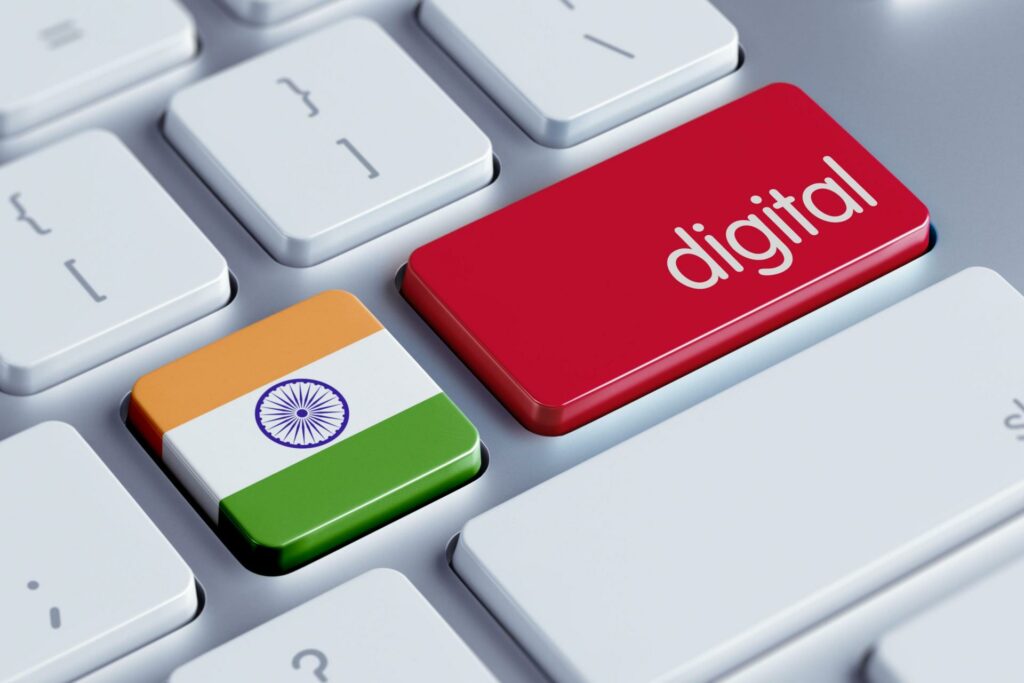Digital Zeitgeist – According To India The World Can Learn A Lot From India’s G20 Leadership
The ministers discussed India’s strategy for managing the economy, digital economy, regulation in the digital economy, and India’s strategy for emerging technologies.
At the B20 India Inception Meeting that took place in Gandhinagar on Monday, Union ministers Ashwini Vaishnaw and Piyush Goyal said that the rest of the world could learn from India’s approach to economic management and digital economy. They were trying to ‘hard sell’ India’s economic growth story to the rest of the world.
“I would like to share four approaches that India has taken under the leadership of Prime Minister Narendra Modi that could perhaps be good approaches to share among all of us and see if many of those approaches could help us solve some of the pressing problems the world is facing,” said Vaishnaw, the Union Minister for Electronics and Information Technology.
Citing India’s approach to economic management, digital economy, regulation in the digital economy and approach towards new technologies, he said, “In this turbulent period during the past two years, the world has seen what it has not for more than a century. And our response has been as per our textbooks in many geographies and large economies. Contrasting that to the approach that India’s Prime Minister Modi took is something which I thought is good for all of us to think about and see and whether some of these lessons are relevant for all of us.”
According to the minister, India is currently experiencing healthy, robust growth of 6.9-7.0 percent and moderate inflation of approximately 5.8 percent as a result of a combination focused consumption aimed at vulnerable sections of the society and investments that gave a long-term productivity boost to the economy. “The end result of using this approach will be to generate solid growth while maintaining modest inflation. Is it possible that this strategy might provide us with fresh perspectives on how to manage problems that are comparable elsewhere in the world? Yes, it is possible. At a meeting that was attended by Indian and international dignitaries and delegates, Vaishnaw posed the following question to the economists associated with this group: “Can the economists associated with this group see whether the classical fiscal stimulus of sending out cheques versus a combination of consumption and investment; what is the right way forward?”
Piyush Goyal, the Minister of the Union for Commerce and Industry, emphasised that the Indian economy has risen 11.8 times to 3.2 trillion US dollars in the previous three decades despite the occurrence of certain black swan events.
“India today is a bright spot in the world. About 35 million families have been given a free house with electricity, cooking gas connection, toilets and digital connectivity.
These were the people at the lowest rung of the pyramid—the most deserving and neglected… All the (government) initiatives have collectively ensured that every Indian today can aspire for better things in life. He has moved away from the troubles of health, education, needs of food, clothing, shelter,” Goyal said.
“With all these basic needs taken care of, we have an aspirational society. Thanks to digital connectivity, almost every home has a smartphone, has a television set and fire in the belly for better things in life,” he said, adding that India will need 150-200 million dishwashers, washing machines and dryers in the next 10-15 years.
“India would like to share with the world the big opportunity for economic growth, for powering the world economy, for collaborations and cooperation… We want to take this opportunity to inspire the world; to have a greater degree of dialogue and concern, both for the planet and for the future of our children,” he added.
Amitabh Kant, India’s Sherpa to G20, echoed similar views. “The world is greatly impacted because of geopolitics. There is a major crisis of fuel, food and fertilisers.
“There is a crisis of rising energy prices in Europe. We have seen the post-Covid impact of 200 million people going Below Poverty Line, 100 million people have lost their jobs. There is a crisis of climate action and climate finance. There is also a crisis of 75 countries in the world facing a global debt crisis. As the IMF chief has said, one-third of the world is under recessionary trend. So the Prime Minister of India has said that India’s leadership of G20 will be decisive; it will be inclusive and it will be action-oriented.”
“Pointing out that the lessons of Global South were not getting passed on to the developed world and vice-versa, Kant said, “There are several lessons that the Indian presidency throws up. Some of these are about the unique narrative of India that has used the process of digitalisation to transform its citizens. It has provided digital identity to every single Indian and it has provided linking of digital identity to banks and to ensure fast payments. As the Bank of International Settlements has said India has achieved in eight years what would have normally taken 50 years, to transform the lives of its citizens. The world today has four billion people without a digital identity and two billion people without a bank account and 133 countries without fast payments. Therefore, much transformation will have to happen with the private sector across the world.”
“While you are in India, we would like you to think afresh; think of transforming the world by going digital and green and ensuring that the global value chain becomes more inclusive and resilient,” he added.
online sources: indianexpress.com

